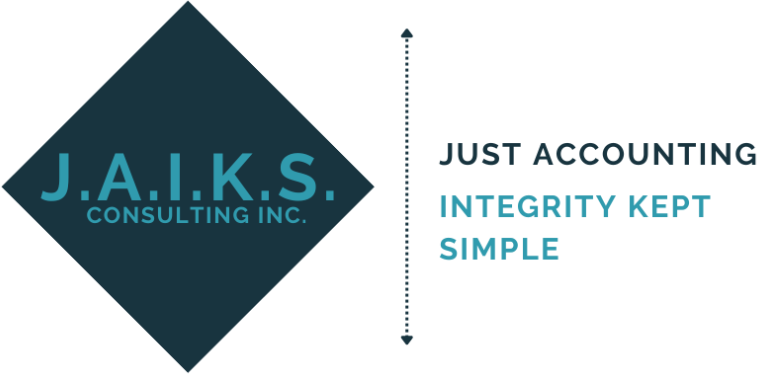J.A.I.K.S. BLOG
Welcome to J.A.I.K.S. Blog, a place where we will provide you with a variety of resources on accounting, taxation and other related subjects suited for both individuals and/or their businesses.
We hope you can find the answers to your questions and/or curiosities, and always know we are here to help if you need more.
Follow us on Facebook or find us on LinkedIn - we are always eager to give you more!
Disclaimer:
The content provided in this blog is for general informational purposes only and is not intended as professional accounting, tax, or financial advice. While efforts are made to ensure the accuracy and timeliness of the content, errors or omissions may occur. The content does not constitute a client-advisor relationship. Readers should consult with a Chartered Professional Accountants or other financial professional for advice tailored to their specific needs. We are not liable for any actions one might take based on the information provided in this blog.
An up-to-date business balance sheet is a critical financial statement that provides a snapshot of a company's financial position at a specific point in time. It lists the company's assets, liabilities, and shareholders' equity. Here are several scenarios where having an up-to-date balance sheet is particularly beneficial:
Balance Sheets are not just for Corporations, but are equally important for Sole Proprietors for the following reasons:
Should you have established an in-trust-for (ITF) account for your minor child or hold specific assets jointly, such as a joint bank account or being added to the title on a home, you, and/or they, may now fall under the purview of recently implemented trust reporting regulations, effective for taxation years ending after December 30th. These regulations might necessitate the filing of a T3 Trust Income Tax and Information Return within 90 days of the year-end, irrespective of whether there's any income or activity to report. Given that trusts typically have a calendar year-end, the first tax return for 2023 would be due by April 2, 2024 (as March 30 falls on a Saturday, and April 1 is Easter Monday). Perhaps you have heard about this new trust reporting and do not know if it applies to you, please feel free to contact us. More information is below regarding the new trust reporting.
Minimizing taxes for a deceased taxpayer's estate in Canada involves careful planning and following specific strategies. The goal is to reduce the tax liability of the estate and maximize the assets passed on to beneficiaries. Here are some steps to consider:



